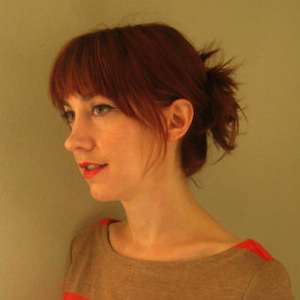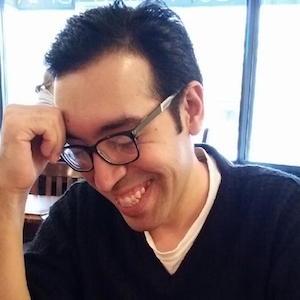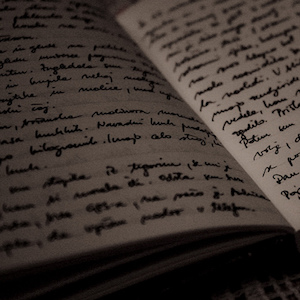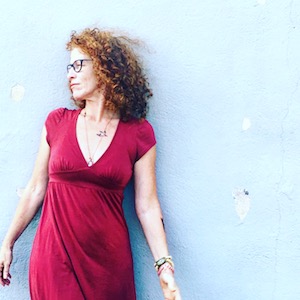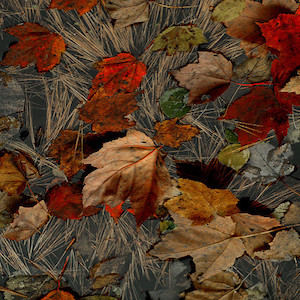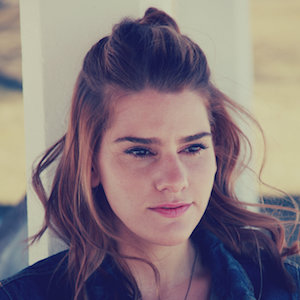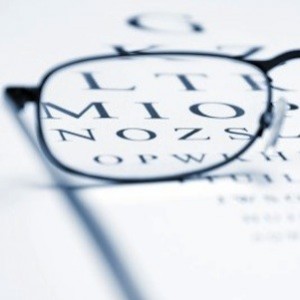Compose Q&A with Poet Rebecca Hazelton
We recently exchanged a series of emails with Rebecca Hazelton—one of the featured poets in our Spring issue—regarding her work, her views on poetry, and much else besides.
She is the author of Fair Copy and Vow, and is currently working on a series of ekphrastic poems based on the work of Terri Frame, Julie Heffernan, and Cindy Sherman.
COMPOSE: How did you start writing poetry?
REBECCA HAZELTON: My father was a librarian, so we had a lot of books in our house, and I spent a great deal of time reading at his work. There wasn’t a lot of poetry in our house, though, just a few Modern Library classics. My grandparents gave me an old edition of Dorothy Parker, which probably explains a lot about me, and I read some E.A. Robinson and Frost. It wasn’t until I was a teenager and had my own pocket money that I started picking up volumes of poetry in used bookstores. My first few books were Mark Strand, Andrew Hudgins, Anne Sexton, Plath. Poetry wasn’t actively on my radar, though. I thought of myself as a fiction writer, and I started writing long and poorly plotted genre fiction around the age of sixteen. They were really gory, actually, which is strange since these days I can’t handle most horror movies. I wrote my first poems around my senior year of high school. But it wasn’t until those poems afforded me a writing scholarship to Davidson College that I started thinking I should pay a little more attention to them.
C: Was there a “moment” you decided you would write poetry as your main creative medium/career?
RH: The more I wrote, the more it became apparent that I had a greater capacity for poetry than I did for fiction. I’d already decided I wasn’t likely to be an impressive visual artist, though at times I wonder what would have happened if I’d gone that route. I imagine it would have the same penurious outcome, however. I don’t know if I think of myself as having a career, probably because I associate a career with things like money or stability. I have a terrible habit of poetry, perhaps.
C: What’s your writing process like?
RH: It varies for different work. For editing, I like to work in the morning to early afternoon. I print out all my poems and edit by hand, mostly small corrections or notes to myself about what deeper work needs to happen, but little actual writing. The next stage is to then input all those changes on my computer, and do the harder work of rethinking poems.
For actual writing, I prefer to write in the evenings, but you can’t always get what you want. Jobs and other responsibilities won’t let you always have that perfect time to write. So I’ve had to let go of that preference, which has been really instructive for me. There was a period in my life where I was commuting an hour’s drive to my job. By the time I got home at night, I was exhausted, and had grading still to do, and little creative impulse left after that. Realizing the circumstances couldn’t change, but that I could, was a big deal. So I got up earlier and would arrive on campus and hour early. I’d go to a coffee shop and write. That hour was all I got, and I wrote frantically. It was a bizarrely productive time for me, although tiring.
I usually have a stack of about ten books of poetry around me—books I’ve found inspiring or books I’m just interested in. I flip through them with no real purpose until I get an idea. Sometimes it’s just a phrase that prompts a response, or a word that sparks an association. Then I write until I stall, and repeat the process. I use visual art and movies in similar ways—and more of my poems have been inspired by music videos than I’d like to admit.
C: Are there certain things a poem in progress must accomplish for you to feel it is successful?
RH: Poems can do many things, and there are many different aesthetics; what one reader finds essential another finds superfluous. I can say that for my own purposes, a successful poem brings me to a greater recognition or understanding about life or the art of language. Which sounds grand, but my standards are low—if your poem makes me go, “That is how my spoon sounds when I rest it in the cereal bowl!” then I’m probably satisfied. But those are my criteria, and other people will want other things.
That said, these aren’t the criteria I apply to a poem in progress. I don’t worry about “is this a poem” questions when I write. I assume it will be, eventually. If I worried about that, I wouldn’t get much done. There are times when I’ve returned to poems that I drafted years prior and was able to make them work, or, worst case scenario, strip them for parts for current poems. I’ve had failed poems that I realized years later were just rough drafts for a poem I recently wrote. Nothing is wasted effort. Old ideas that don’t work out in one version can work out in newer poems.
As for what criteria I do apply to a poem in progress, I’m attentive to interesting sound, a clash of ideas, quite possibly a Socratic progression, though my logic is not always the logic of reason.
C: Do you ever “know” a poem you’ve written works?
RH: Yes. I’ve on occasion had poems arrive almost fully formed, with just a little tweaking needed here and there. Those are very good days. Most days are not those days. I’m hard pressed to tell you what I have to do to make an unfinished poem finished. I am intuitive about these things—I work on a poem until it feels done.
C: You wrote and published for about six years between finishing your MFA and publishing your first book. When you look back on those years, what comes to mind?
RH: Mostly, that I needed that time because I wasn’t ready. My MFA thesis was eighty pages of poems I’d worked hard on, but it wasn’t a book. I shelved it not long after graduating because I had no interest in it anymore. I pursued a PhD because I needed more time to write, and drafted Fair Copy in my fourth year and revised it in my fifth. Then I sent it out for several years, revising periodically. I actually published only a few poems during that time, as I really only started submitting regularly in 2010. The time between submitting your first book and having it taken is a traumatic time for everyone, and you get pretty sick of the horror stories (“This one guy waited ten years!”) and the instant gratifications (“It was my first time sending out and they took it!”). But I told myself that if the book was finalisting, and it was, then someone would take it, and I’m very grateful to Andrew Hudgins for choosing my book.
C: You’ve been selected for the 2013 Best American Poetry. What was finding out about it like?
RH: I got the email and let out a huge whoop, and then I laughed, and then I started to cry. I have a very unpleasant outlook on life sometimes, where I assume that if something good happens then something bad is on its way. So I’ve been careful not to leave my house so I won’t be hit by a car.
C: Beowulf or Canterbury Tales?
RH: Canterbury Tales, absolutely. I enjoy Beowulf well enough, but nothing can surpass the dirty jokes and great sound of Chaucer. I also really enjoy his Troilus and Criseyde, and The Legend of Good Women. He’s one of my super hilarious misogynists that I love.
C: Wallace Stevens or William Carlos Williams?
RH: It’s perhaps not entirely in the spirit of the question, but my answer is both. It’s common to think of William Carlos Williams as a poet concerned with experience and Wallace Stevens with the imagination, but one of the delights of poetry is synthesis and drawing from a variety of approaches. Putting them in binary opposition can be a useful shorthand when discussing aesthetics, but there is the danger of reducing them to symbols of certain poetic camps that increasingly feel dated.
C: Sylvia Plath or Elizabeth Bishop?
RH: Plath for sound, Bishop for sense. Which isn’t to say Plath is nonsensical, or that Bishop doesn’t have lovely sound. But as I grow older, I’m more interested in what Bishop has to say, which may simply be because Bishop had the benefit of being older than Plath ever was.
C: Any new or emerging poets whose work you’ve fallen in love with lately?
RH: I’ve recently been enjoying the work of Glen Shaheen. I recently read a book by Sean Bishop that is forthcoming from Sarabande, and it is fantastic. I like Steve Healey’s work a great deal!
C: It’s a huge question, but why do you write poetry?
RH: It’s the only thing I’ve consistently liked doing. It gives me pleasure to make a poem; it feels like puzzle solving. After I write a poem, I understand myself and my place in the world and other people just a little bit better. Poetry is our greatest ontological tool — perhaps it’s no surprise that some people avoid it.
Learn more about Rebecca Hazelton at her website, and read the poems she wrote for our inaugural issue here.

